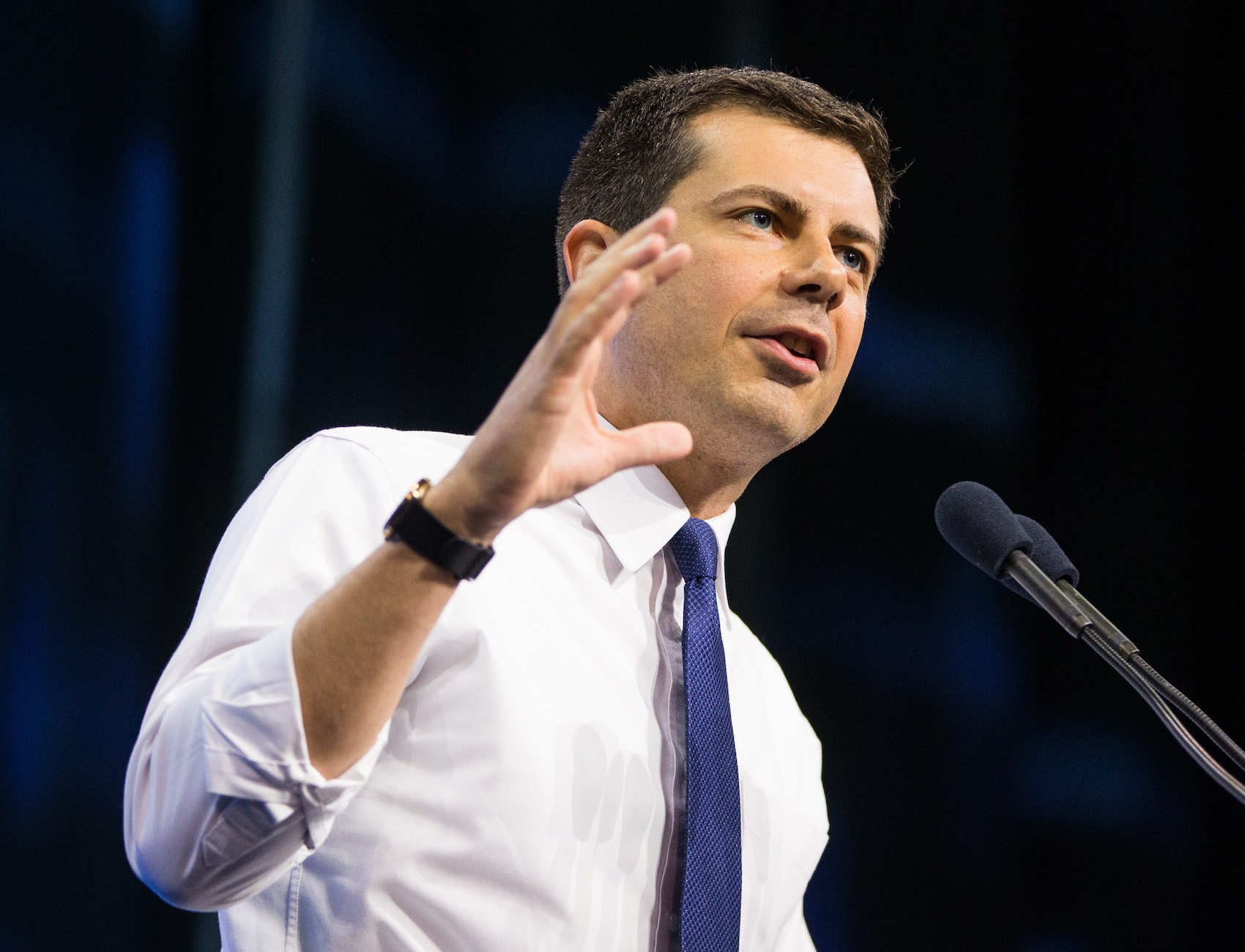Presidential Candidate Pete Buttigieg Releases Criminal Justice Reform Plan
The South Bend, Indiana, mayor says his plan—which includes cutting the incarcerated population by half—will “rebalance” a system that is “unfair and racist in many ways.”

Pete Buttigieg will cut the nation’s incarcerated population by 50 percent and invest in programs that provide alternatives to jail and prison if he is elected president, according to a criminal justice reform plan his campaign shared with The Appeal on Friday.
“We must recognize that our criminal system is unfair and racist in many ways,” Buttigieg said in a press release. “Justice must include a real second chance. Incarceration should not be about detention, but about redemption.”
At the federal level, the South Bend, Indiana, mayor and 2020 Democratic presidential hopeful plans to “eliminate incarceration” for drug possession, establish an independent clemency commission to commute sentences, and limit supervised release to two years, among other measures. At the state level, Buttigieg’s plan calls for doubling the funding for federal grants to states that commit to decarceration policies, including reforming the harmful ways people are treated before they have a trial. He will also support states in abolishing youth prisons and pushing to raise the age at which youth offenders can be prosecuted as adults.
Buttigieg acknowledged in a press release that low-income, Black, and Latinx people in particular are subject to “immense and often unchecked pressure” by the criminal justice system. To “rebalance” the system, Buttigieg plans to establish pay parity between federal public defenders’ offices and federal prosecutors, and explore remedies for the same issue at the state level. And he will promote restorative justice programs, which engage the perpetrators and survivors of crimes in a process of reconciliation as an alternative to incarceration.
Buttigieg’s plan also addresses police brutality and accountability—issues for which he has faced backlash during his candidacy. In June, a South Bend police officer fatally shot a Black man in June, and activist groups like Black Lives Matter criticized the mayor over his handling of the shooting. During a July presidential debate, Buttigieg said the Indiana city planned to revise its use of force policy and is rethinking the makeup of a board of safety that has oversight of police matters.
According to his new plan, Buttigieg will “promote legislation” to raise the legal standard for use of force by police officers, while also working to end qualified immunity so that officers and other law enforcement officials can be held legally accountable for wrongdoing. He also called for the creation of a national board to assess incidents of police violence and misconduct.
“It is past time to transform the criminal legal system to one that truly promotes justice, and benefits all of us,” Buttigieg said.
Criminal justice reform has emerged as a key topic in the Democratic presidential race. Buttigieg now joins seven other candidates—former Vice President Joe Biden; former Housing and Urban Development Secretary Julian Castro; and Sens. Elizabeth Warren, Bernie Sanders, Kamala Harris, Cory Booker, and Amy Klobuchar—in releasing a proposal on the issue.
Buttigieg’s plan shares some similarities with those of other candidates but does not go as far as progressives Warren and Sanders. For example, Buttigieg’s plan does not commit to ending the use of solitary confinement or eliminating money bail. Harris, the former California attorney general who released her plan in September, also supports ending both practices.
Buttigieg and nine other Democratic presidential contenders are scheduled to appear at Second Step Presidential Justice Forum, a bipartisan criminal justice conference at Benedict College in Columbia, South Carolina, this weekend. President Donald Trump addressed the forum on Friday.
